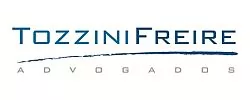On September 16, 2013, the Brazilian Federal Revenue Secretariat ("RFB") enacted Instruction 1,397 ("IN 1397"), which requires certain Brazilian companies to prepare separate financial statements for tax purposes ("Tax Balance Sheets"), based on the old Brazilian GAAP in force until December 2007.
Just as a clarification, for statutory purposes, the law establishes that these companies must adopt the IFRS to prepare their accounting books. The new obligation aims at revealing what would have been the profits if the 2007 Brazilian GAAP was still in force for statutory purposes, creating the concept of "Tax Profits".
According to IN 1397, the tax exemption on dividends applies only to the portion of distributed profits that does not exceed the Tax Profits, regardless of the amount of accounting profits. Any excess must be treated as ordinary income, subject to income taxes.
IN 1397 also provides that interest on net equity ("INE", which is another form of remunerating shareholders under Brazilian law) must be calculated on the Tax Balance Sheet's net equity, which may either increase or decrease the payable INE.
The major concern of taxpayers is not exactly the additional ancillary obligations of preparing new financial statements, but rather the possibility of tax authorities trying to apply them retroactively. Given that IN 1397 reflects the tax authorities' interpretation of the law, this interpretation could be theoretically applied within the statute of limitation of 5 years.
However, Law 9,249, which granted the tax exemption on dividends in Brazil, does not limit the application of this exemption to Tax Profits, but generally to profits. Therefore, we understand that there are very good grounds to challenge the RFB's interpretation in Court. The same applies to the calculation of INE.
The content of this article is intended to provide a general guide to the subject matter. Specialist advice should be sought about your specific circumstances.








